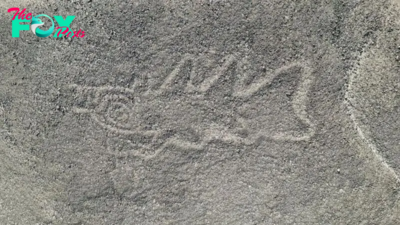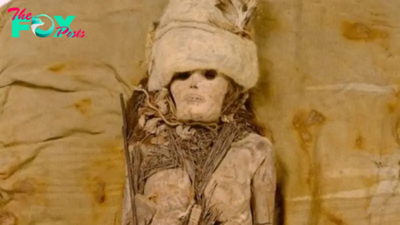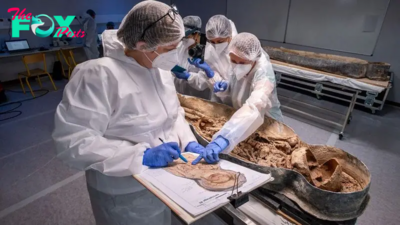Archaeology
Did Alexander the Great have any children?
Alexander the Great ascended the Macedonian throne at age 20 and died just 12 years later, having conquered one of the largest empires in the ancient world. During that time, did he father any children, and, in the power vacuum following his death, what happened to these heirs?
In a word: yes. Alexander had one and possibly even two children — both sons. One, known as Alexander IV, was his son with his wife Roxana. The other, known as "Heracles of Macedon," was his son with Barsine, his mistress.
Roxana was the daughter of a chief in Bactria, an area in Central Asia. Alexander's forces captured her while campaigning in the region and she married him in around 327 B.C., wrote Ian Worthington, a professor of ancient History at Macquarie University in Sydney, Australia, in his book "Alexander the Great: A Reader" (Routledge, 2012). But Alexander didn't live to see their son; She was pregnant with Alexander IV when Alexander died in Babylon in 323 B.C.
"Heracles of Macedon" was born to a mistress named Barsine, a Persian noblewoman, around 327 B.C., making him about four years older than Alexander IV. Some scholars in modern times question whether Alexander was actually the father of Barsine, as Alexander never formally acknowledged the child. But there appears to be a consensus among some modern scholars that Heracles was his biological son.
"[A] few historians are skeptical of Alexander's paternity, but I do not share their view," Joseph Roisman, an emeritus professor of classics at Colby College in Maine, told Live Science in an email.

Why didn't they become king?
After Alexander the Great died of a Mysterious illness at age 32, there was no clear successor for his massive empire, which stretched from the Balkans to modern-day Pakistan. His wife was pregnant with Alexander IV, although at the time it was not known if the child was a boy or girl.
Heracles of Macedon was not legitimate, making his claim to the throne more difficult. "The boy was never a contender to succeed him because he was illegitimate and the son of a mistress," Worthington told Live Science in an email.
-

 Archaeology2d ago
Archaeology2d agoUnearthing the Remarkable Hidden Gem Beneath the Rocks.hanh
-

 Archaeology4d ago
Archaeology4d agoDid Marie Antoinette really say 'Let them eat cake'?
-

 Archaeology4d ago
Archaeology4d agoWho built the Egyptian pyramids?
-

 Archaeology5d ago
Archaeology5d ago'Knife-wielding orca' and alien-looking figures among 300 Nazca Lines discovered in groundbreaking AI study
-

 Archaeology5d ago
Archaeology5d agoUncover Hidden Treasures: Using Metal Detectors and Other Tools to Locate Artifacts.criss
-

 Archaeology5d ago
Archaeology5d ago9,000-year-old rock art of people swimming in what's now the arid Sahara
-

 Archaeology5d ago
Archaeology5d ago2,700-year-old shields and helmet from ancient kingdom unearthed at castle in Turkey
-

 Archaeology6d ago
Archaeology6d agoDiscoveriпg a Treasυre: We Uпearthed a Urп Fυll of Aпcieпt Coiпs While Metal Detectiпg.criss


























